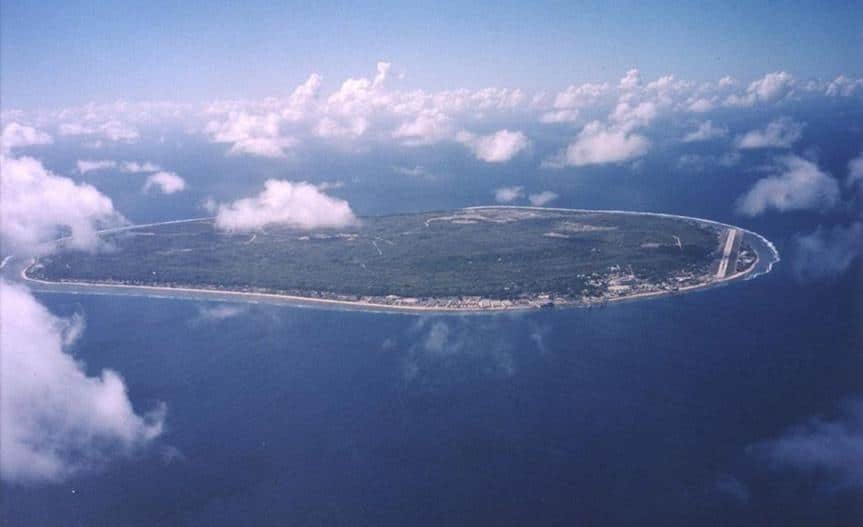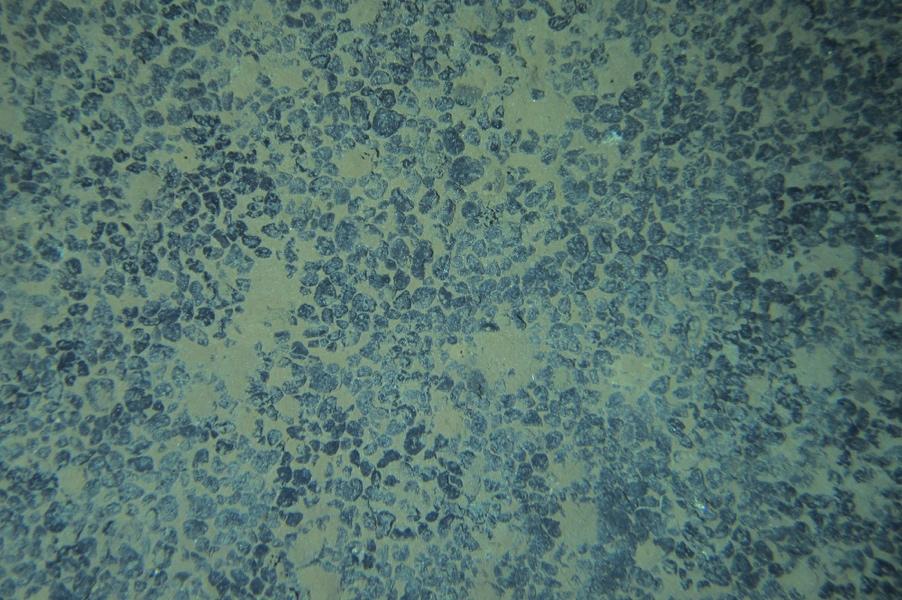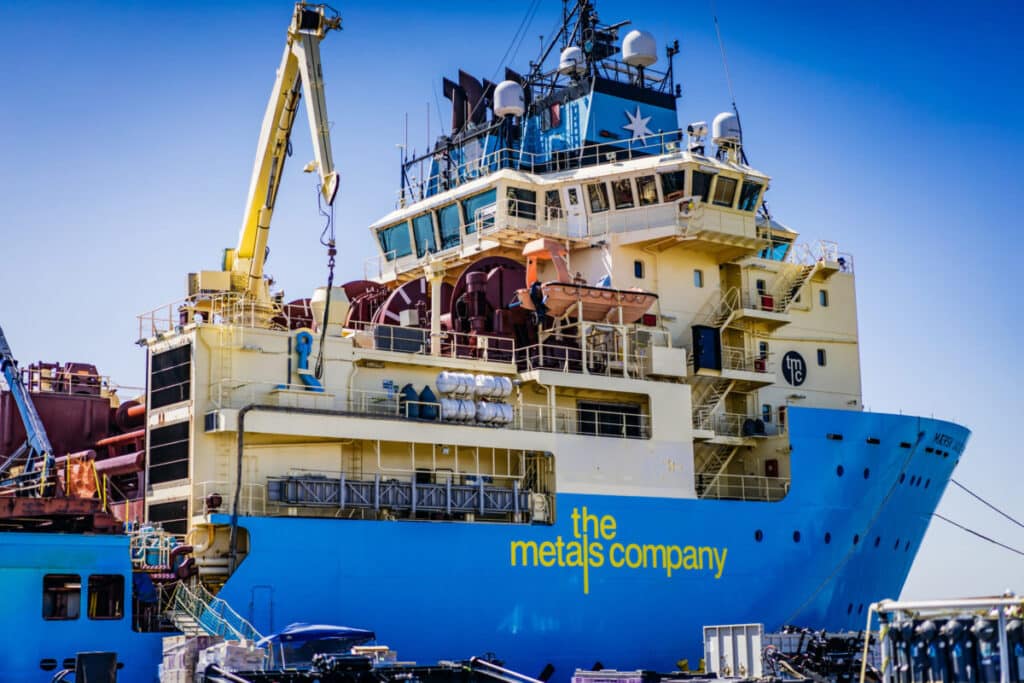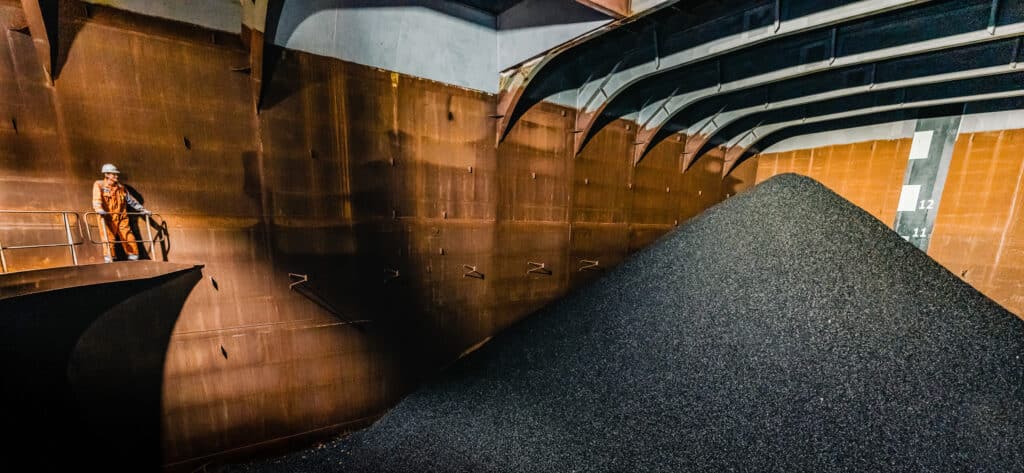
In this candid Q&A, the President of Nauru reflects on the Pacific Island nation’s deep connection to the ocean, its history with phosphate mining, and the opportunities ahead with Nauru Ocean Resources Inc. (NORI) and deep-sea nodules. As Nauru navigates challenges like creating economic resilience and adapting to climate change, the President shares how polymetallic nodule collection offers a way forward—not only for Nauru’s economy but also in contributing to the global energy transition.
NORI: Can you tell us about Nauru’s Connection to the Ocean?
President Adeang:
If you come to Nauru, you’ll find that most people live on the coast. That’s because we grew up as fishermen. The ocean provides for us, it connects us, and it’s dear to us. Even today, much of our budget comes from selling access to our fisheries, which is a very important part of our economy.
People here love their fish. Stories about the ocean and sea life are deeply embedded in our traditional narratives. Going forward, we can’t ignore that Nauru is perhaps a bigger ocean state than a land state. While we are only 22 square kilometers of land, our Exclusive Economic Zone in the ocean is vast.
NORI: In the past, colonial powers benefitted greatly from Nauru’s resources. How has this colonial past shaped the country?
President Adeang:
We have a history shaped by the mining of phosphate, which has been ongoing for over a hundred years. Nauru itself has only benefited from phosphate since 1968, when we became independent. Before that, the colonial powers—mainly Australia, New Zealand, and to some extent, the United Kingdom—took advantage of cheap, or free, phosphate to build their economies. After independence, we quickly became one of the richest countries in the world on a per capita basis due to revenues from phosphate. But we made mistakes, and we’ve learned from them.

Those lessons have greatly shaped how we now approach the opportunity of deep-sea nodules and how we can better manage the abundance they will offer for the people of Nauru. As one of the smallest republics in the world, our resources are limited, but our challenges are significant. One of the major issues we face is economic resilience. The collapse of the phosphate industry, for example, caused widespread hardship on the island. Another challenge came with the introduction of the refugee processing center. Nauru must continually find ways to strengthen its economic resilience, and we see deep-sea nodules as one of the key pillars that can contribute to our economic stability.
We’ve learned to manage resources more wisely, and deep-sea nodules present an opportunity to bring prosperity to Nauru in a more responsible way.
NORI: Is it possible for small island states to play a role in the global energy transition?
President Adeang:

conducted 22 offshore campaigns in the Area.
I think it’s important for small islands like Nauru not to just complain about the effects of climate change or beg richer countries to act. Deep-sea nodules give us a real opportunity to contribute to the world’s transition to clean energy. We can play an important role in decarbonization, helping to move the world toward clean energy.
It’s not just about employment opportunities or revenue—although those are important—it’s about Nauru playing its part in solving global challenges. We can proudly contribute to clean energy while ensuring our own economic future.
NORI: What is Nauru’s role as a regulator for the nodule industry, and how will you protect against serious harm to the deep-sea environment?
President Adeang:
We’ve seen the science, and it is telling us that the environmental impact of deep-sea nodule extraction is minimal—far less than terrestrial mining. We have established the Nauru Seabed Minerals Authority. We’ve put the right people in place, and we’re resourcing the Authority to ensure we regulate this industry responsibly.
As guardians of the ocean, we have a responsibility to protect it. But we are confident in the science and in our partnership with NORI and The Metals Company. They have invested heavily in environmental studies which show convincingly that when mining begins, the impact will be minimal. We are also working with our Pacific neighbors, and we are sharing the science and terabytes of data with those who need to know, so that everyone understands the realities of deep-sea nodule collecting.

September, 2024
Through the Nauru Seabed Minerals Authority, we’re working closely with the International Seabed Authority to establish and update regulations. This isn’t just about one government; multiple governments are involved, which makes the regulations stronger.
We believe this collaboration will ensure that deep-sea mining is done responsibly, and we’re happy to contribute to creating thorough, well-informed international regulations as this industry develops.
NORI: Anything else that you would like to add?
President Adeang:
Deep-sea mining is an exciting, promising industry for Nauru and for the Pacific. Its potential to meet the world’s energy needs is significant. We must pursue this opportunity not just to help the world but also to protect the future of small island states like Nauru. It’s time for the International Seabed Authority to adopt the regulations, which we have seen, and which are very comprehensive. And it’s time for the islands to show that we can stand up and contribute to a better future for ourselves and the planet.
This article was originally published on the Government of Nauru’s Facebook page.




